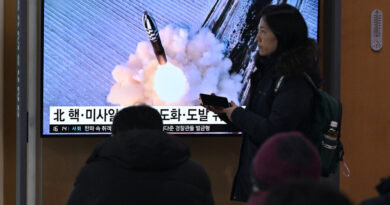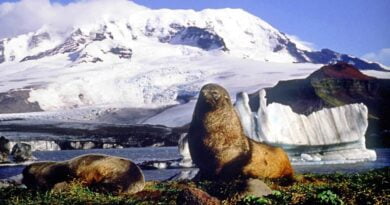Evening News Bulletin 7 June 2025
In this bulletin;
- Police confirm human remains have been found in the search for missing teenager Phoebe Bishop;
- Protesters clash with police outside a federal detention centre in Los Angeles;
- In soccer, Venezuela one step closer to qualifying for the World Cup.
Police have confirmed human remains have been found in the search for missing teenager Phoebe Bishop.
On Friday, Queensland Police said in a statement that what were believed to be human remains had been located near Good Night Scrub National Park around 2:30pm.
A crime scene was declared at the area near Gin Gin in Bundaberg, and police were in contact with the 17-year-old’s family.
Detective Inspector Craig Mansfield has now confirmed the remains have been tested and identified as human remains.
“As a result a crime scene is still established there at the moment, and further forensic testing is being conducted. We have been in contact with Phoebe, and Phoebe’s family and advised them of this development. Understandably, this has caused great distress to them, but have been supportive of information they have been receiving along the way.”
The development follows the arrest of Pheobe’s housemates — 34-year-old James Wood, and 33-year-old Tanika Bromley.
The pair were both charged with one count of murder and two counts of interfering with a corpse, and were remanded in custody.
Detective Mansfield added that the forensic testing is expected to be finished today, but noted that the unforgiving terrain could add time to the examination process.
South-east Australia is expecting a cold snap over the weekend, as a mass of polar air from sub-Antarctic waters brings several days of showers, highland snow and well-below-average temperatures.
The Bureau of Meteorology’s Senior Meteorologist Dean Narramore told Channel Nine Adelaide, Melbourne, Hobart and Canberra can expect cold, wet and windy weather over the next few days.
Mr Narramore says alpine areas can expect 40 to 60 milimetres of snow over the next three days, adding that the cold temperatures are expected to last till Tuesday.
“It’s going to stay cold pretty much right through to Tuesday. But along the east coast of northern Australia they’re going to see temperatures near average or slightly belwo in the coming days but lots of sunshine there and staying dry. And the warmth in the short term will be hanging out through western parts of Australia. That might get to eastern and southeastern parts this time next week.”
Protesters have clashed with police outside a federal detention center in Los Angeles after federal immigration authorities arrested more than 40 people.
Dozens of demonstrators gathered outside the center where they believed those arrested had been taken, and police are said to have used pepper spray and smoke grenades to disperse the crowds.
The protests were prompted by arrests made by The Department of Homeland Security in multiple immigration enforcement operations that took place across Los Angeles.
Angelica Salas, executive director for the Coalition of Humane Immigrant Rights, says at least 45 people were arrested without warrants.
Federal immigration authorities have been increasing arrests across the country to fulfill President Donald Trump’s promise of mass deportations.
Health officials in Sudan say more than 1,000 cases of cholera are being reported a day in the capital, Khartoum.
The outbreak is centred around the capital and the city of Omburdman, and has spread as thousands of Sudanese people who had fled the country’s war are returning home.
Much of the sanitation system has collapsed amid the civil war, and residents are often only able to find unclean water, which is a dangerous conduit for the disease.
Director of Doctors Without Borders in Sudan Nicolas Jean says lack of clean water, coupled with poor hygiene and limited access to health care are contributing to the rapid spread of the disease.
“Obviously regarding the consequences of the conflict on the water system, on the health system, on the hygiene of the people, a lot of people got displaced many times so they didn’t have a shelter or even a house… So… the lack of water, the lack of hygiene, and the lack of access to health care, all that contributed to really increase the cholera.”





